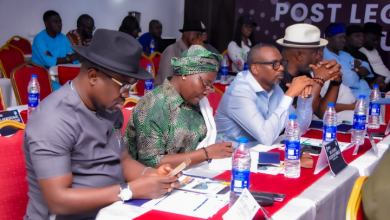Akpoti-Uduaghan to distribute electric vehicles in Kogi Central

In a groundbreaking initiative that blends empowerment with environmental sustainability, Senator Natasha Akpoti-Uduaghan is set to distribute locally assembled electric vehicles to more than 100 constituents in the Kogi Central Senatorial District.
The project, which forms part of her annual constituency empowerment programme, represents Nigeria’s first large-scale introduction of made-in-Nigeria electric vehicles for community use signaling a bold step toward green innovation and grassroots development.
In a statement from her Media Office on Friday, the senator described the initiative as “a ritual of giving back, but this time, with a futuristic twist that promotes sustainability, innovation, and self-reliance.”
According to Udensi Bernard, a renewable energy expert collaborating on the project, the idea was conceived two weeks earlier when Senator Akpoti-Uduaghan paid an unscheduled visit to his office.
“She came straight to the point and said, ‘I want to carry out my yearly empowerment, but this time, I want to empower my people with electric vehicles,’” Bernard recalled.
Following the meeting, production and assembly commenced in Nigeria using local materials and labour, with the goal of promoting indigenous capacity in clean energy technology.
The senator personally selected the vehicle models, which were designed for durability, low-cost maintenance, and energy efficiency.
The beneficiaries mainly women, farmers, and small business owners will receive the vehicles in the coming weeks during an official unveiling ceremony in Kogi Central.
Bernard explained that the vehicles are expected to deliver significant economic and environmental benefits to local communities.
“For farmers, they make it easier to move produce to markets. For business owners, they cut logistics costs.
”For transport operators, they increase profits while reducing dependence on petrol and diesel,” he said.
He added that electric vehicles offer long-term gains such as reduced fuel expenses, minimal maintenance, and lower carbon emissions aligning with Nigeria’s gradual transition to renewable energy and sustainable mobility.
‘Senator Natasha’s initiative is not just empowerment. It is a visionary step toward a cleaner, smarter, and more self-reliant Nigeria,” the statement noted.
Since returning to legislative duties after a six-month suspension, Senator Akpoti-Uduaghan has embarked on a series of impactful projects to reconnect with her constituents.
The electric vehicle empowerment programme, expected to be officially launched in the coming weeks, has already drawn attention from policymakers, environmental advocates, and the local automobile industry.
With this initiative, Senator Akpoti-Uduaghan appears to be setting a new benchmark for constituency representation—one that fuses innovation with inclusion, and empowerment with sustainability.
Observers said the initiative could serve as a national model for integrating green innovation into constituency projects, positioning Kogi Central as a pioneer in Nigeria’s clean mobility drive.



